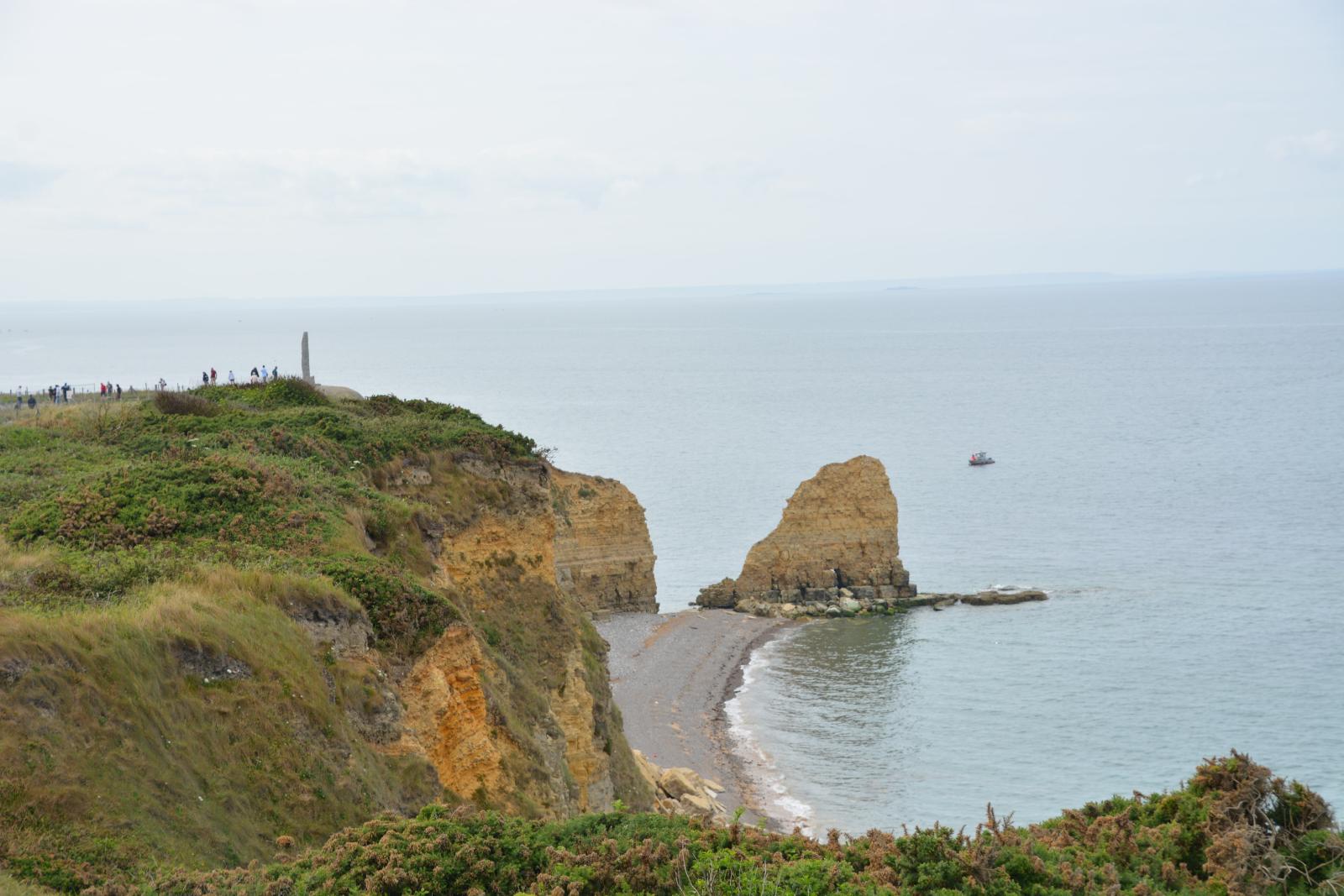Program Overview
The Albert H. Small Normandy Institute accepts 15 student-teacher teams for an intensive study of the Normandy Campaign of 1944. Learn more about the program requirements, eligibility, travel, and other guidance to help you make the most of your experience.
Important Dates
September 1, 2025: Application Opens
December 1, 2025: Application Closes
January 14, 2026: Online Sessions Begin
June 20, 2026: Travel to Washington, DC
June 24, 2026: Travel to France
July 1, 2026: Return to Washington, DC
Course Access and Sessions
Members will be registered with the George Washington University Office of Non-Degree Students to get access to Blackboard — an online platform — where assignments, other readings, recorded lectures, discussion boards, and updates will be posted. The Institute will provide participants with a set of books and access to readings posted on the Blackboard website.
Starting on January 14, 2026, Institute members and staff will meet over Zoom, usually bi-weekly, to discuss readings and lecture topics. Each session will have assigned readings and often an online lecture. Discussions will center on questions generated by student-teacher teams with assistance from Institute Staff.
Major Projects

In addition to participating in the online discussions and lectures, student-teacher teams will work on the two primary projects over the course of the semester. The first is a briefing paper chosen from a list of topics about the Normandy Campaign. During our time in France, students will present on what they have learned about their topic.
The second project is a critical component of the Normandy Institute. Each student-teacher team will identify a soldier from or near their hometown who is buried in the Normandy American Cemetery at Colleville-sur-Mer. Throughout the semester, the teams will work with archival documents — including online census records, draft cards, enlistment records, letters, school yearbooks, and other sources — to piece together the life of the soldier. Student-teacher teams will compile their information into a short biography of their soldier that, once completed, will be given to the American Battle Monuments Commission to be held in the archives at the Normandy American Cemetery. On the Institute's last day in Normandy, students will present their biography of the soldier they have studied at the Normandy American Cemetery.
Travel

On June 20, 2026, after 5 months of in-depth study about the Normandy Campaign and its broader historical contexts, the student-teacher teams will travel to Washington, DC. The teams will stay near the George Washington University campus and visit historical and cultural sites, attend lectures, and engage in discussion. In addition to a day of research at the U.S. National Archives in College Park, Maryland to work with archival documents, participants will also visit the United States Holocaust Memorial Museum, Arlington National Cemetery, and other historic and cultural sites. Institute members will hear from experts in their field about topics like the American home front, antisemitism, the experience of African American soldiers and civilians during the war, the process of memorialization, and much more.
Following their stay in Washington, DC, Institute participants will board a plane to France and, upon landing, travel by bus directly to Normandy. Based in the town of Bayeux, we will spend about a week exploring the region and visiting many of the sites we have been studying. Members will have the opportunity to walk on Omaha and Utah Beach, explore German Atlantic Wall fortifications, and visit other battle sites, cemeteries, and historical museums before spending a final day in Paris. At the completion of the trip, Institute participants will fly back to Washington, DC and the student-teacher teams will return to their hometowns, finish their biographies, and share their experiences with friends, family, and community.
Important Information
Cost: The Institute will pay for all course materials (assigned readings), lodging (double occupancy), transportation within D.C. and France, airline tickets to and from France, and most meals. Each Institute member is eligible for up to $300 of reimbursement for travel to and from Washington, DC. All other travel expenses (including passports, travel insurance, etc.) are the responsibility of the individual Institute participants.
The funding of this Institute is made possible by the generous contributions from the Albert and Shirley Small Family Foundation.
Requirements: All members must be able to stand for an hour as well as walk significant distances (up to 2 miles at a time) over sandy, rocky, or hilly terrain in various weather conditions, including high heat and humidity. Daily walking for the Institute is around 5 to 10 miles per day.
Eligibility: Students must be high school sophomores or juniors at the time of application submission. While a majority of participating teachers work in the discipline of history, this is not a requirement for participation.








